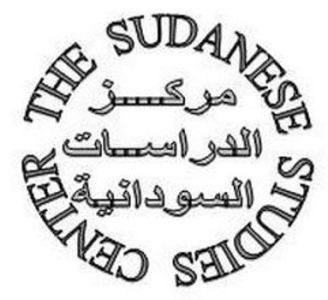Sudan bans studies center over charges of national security
December 25, 2012 (KHARTOUM) — Sudanese authorities banned on Monday the Sudanese Studies Center(SSC) accusing its founder Haydar Ibrahim Ali of receiving foreign funds to overthrow the regime.
 The center’s executive director Abdallah Abu Reesh said on Monday they received a letter signed by the information and culture minister Ahmad Al-Balal informing them of the government decision to close the Center for a year on the grounds that it is engaged in activities prejudicial to the national security.
The center’s executive director Abdallah Abu Reesh said on Monday they received a letter signed by the information and culture minister Ahmad Al-Balal informing them of the government decision to close the Center for a year on the grounds that it is engaged in activities prejudicial to the national security.
The pro-government newspaper Akhir Lahzah reported in its Sunday’s edition that the authorities would launch a broad campaign against a number of “research centers, and those labeled cultural centers”.
The daily said these groups received foreign funds apparently as support for civil society organizations, while this financial support “is in fact allocated to support some political forces opposed to the regime”.
Following a series of small protests in Khartoum and different parts of the country against the regime in June and July of this year, Sudanese officials said that some civil society groups supported by international foundations are behind it pointing out to the role of Sudanese activists members of these groups who based abroad.
Last August, a Sudanese official anonymously told London based Al-Hayat newspaper that some 15 groups received $700000.00 from the National Endowment for Democracy (NED), which funds the SSC, and pledged to take action against it.
He questioned the real intentions of some American circles that provide money to the Sudanese groups under the cover of spreading democracy and human rights.
Haydar Ibrahim Ali denied the government accusations against his center saying this support is free of any political agenda and aims to promote the different activities of the organization.
In a statement extended to Sudan Tribune on Tuesday he challenged the Ministry of Culture and Information to publish these alleged documents proving the involvement of the SSV in any activities against the regime.
He termed the closure’s decision as a measure of “blackmailing and character assassination” against his cultural institution.
(ST)
